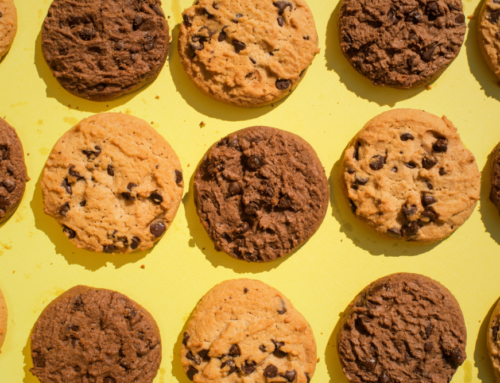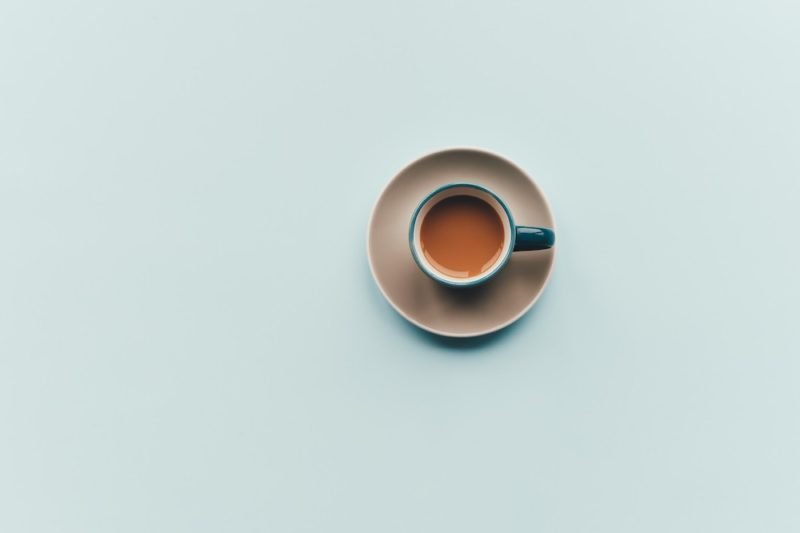
This is Part 2 of a two-part post. Part 1 is about what we lost (a fun vacation). Part 2 will be about what I gained (life lessons and insights).
One of the things I enjoy about travel is experiencing other people and places. But whether I’m traveling to a lakeside campsite, a hotel room in a U.S. city, or an apartment rental in a foreign country, one of the benefits I most welcome is stepping outside my day-to-day routine. Whether my main vacation activities are relaxing in a camp chair with a book, or checking out museums and monuments, the change in scene is like a reset for my brain. It gets the creative juices flowing, and often helps me get much-needed perspective on…whatever.
If you read my previous post about my trip to Ecuador last month, you might think that the stress of protests and tear gas and blocked highways would have been anything but head-clearing. While I spent more time than intended (and wanted) on social media keeping up with what in the heck was happening, strangely, our trip did yield me the desired mental benefits.
Sure, the museums were closed, and we didn’t get to experience as much of the country as we had planned, but the experience of being in a space with less stuff had a dramatic effect.
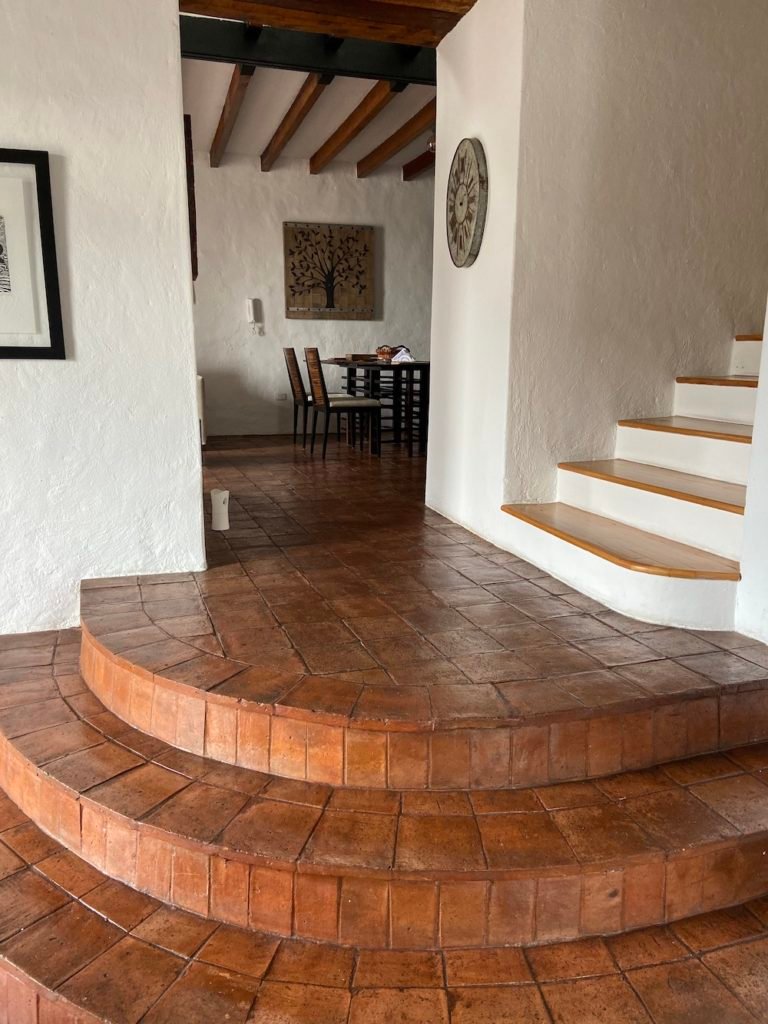
The power of less
This phenomenon was not lost on me. To one degree or another, I experience it every time I stay in a hotel room or vacation rental. Perhaps you do, too. When I spend 10 days in Paris (or Ecuador) living out of a small suitcase, in a minimally yet adequately equipped kitchen, I realize that less can be more. These photos are of our lovely Airbnb in Quito, Ecuador, and I will say that the calmness of the space helped made the uncertainty of our trip bearable.
I have a small collection of books on voluntary simplicity that date back to the 90s. Today, those ideas have largely been rebranded as minimalism, but they’re essentially the same. Yet, I’ve struggled with translating intention to action.
I’ve always felt the push-pull of desiring a clutter-free space (this doesn’t mean austere) yet chasing a consumer lifestyle. But as my life has acquired more facets (writer, speaker, blogger, nutrition coach) and I’ve been traveling more, my need for a calm space has also increased.
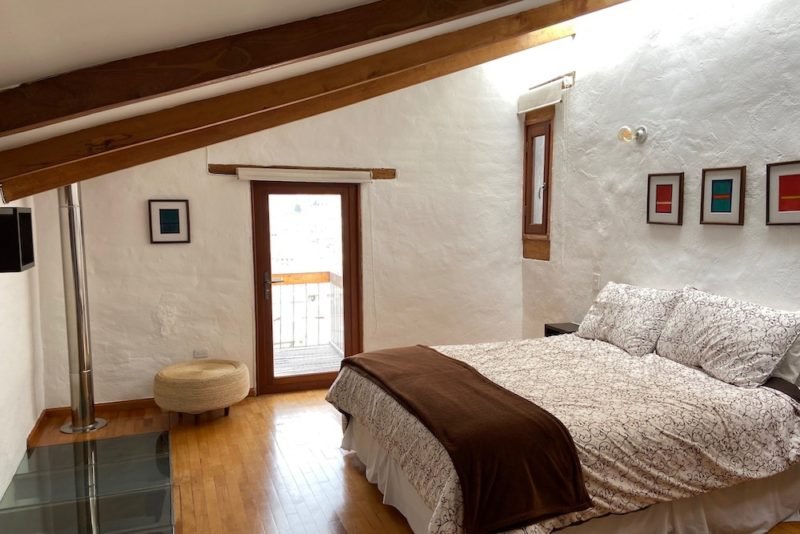
When the student is ready, the teacher appears
It was somewhat serendipitous that I chanced upon the online Uncluttered course (run by Joshua Becker, of the blog “Becoming Minimalist“) while we were in Quito. It was exactly what I needed, and am in the middle of it now. I’ve also been reading books by other minimalist authors.
There is research showing that not only is clutter stressful, but it contribute to poor health. Some of this is due to the stress itself, but if having a cluttered kitchen makes you never want to cook, that can’t help, either. Personally, it stresses me to not being able to find something I want to use right now (a pair of shoes, a kitchen tool) because it’s obscured by too much other stuff. I also find that with as busy as my brain is all day (writing, researching, planning, talking with clients) that I reach the point of decision fatigue very easily with simple tasks like which clothes I want to wear. Next week, I will attempt to try the Project 333 challenge, and we’ll see how that goes!
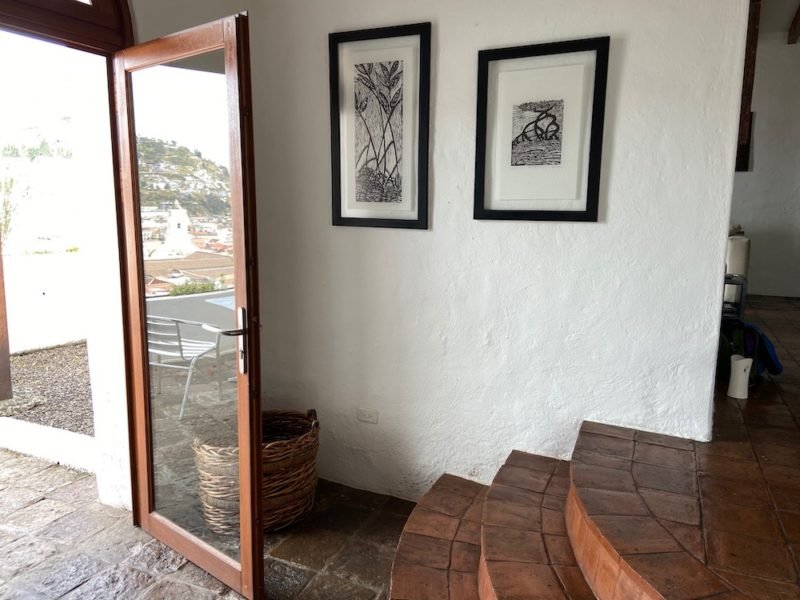
Betwixt and between
I’m in a weird place to be decluttering—like, literally, a weird physical place—because we’re renting a 2-bedroom apartment while our house is under construction (they started putting up drywall yesterday…yay!). We have a small garage filled with stuff (including most of my books, as well as our free-standing freezer and our stock of Costco paper goods and whatnot). We also have three storage units. (OK, one’s for our travel trailer, but the other two are filled with all the stuff we brought from our former two-story house + basement + shed. Oh, and fixtures for the house: bathtub, shower enclosure, kitchen sink, ceiling fans, toilets…you get the drift.)
We did a reasonably good job of not bringing too much stuff into our actual living space, but I have found room for improvement. (Piles of magazines on the coffee table, gone. Paint chips and countertop samples sitting in the living room, stored appropriately. Containers of bread flour sitting out when no bread has been made for months, no more!)
I’ve long suspected that when we finally move into our house and start unpacking, a tremendous number of items are going to be redirected to our garage sale, and now I know that for sure. I’ve already experienced that as I’ve pulled my large plastic tub of winter clothes out of the garage (“Oh, I forgot I had this…and why am I keeping this, exactly?”).
Resources
Would you benefit from a little decluttering or minimalizing? Here are some books, websites and podcasts that I’ve been finding helpful:
- Becoming Minimalist
- Be More with Less
- No Sidebar
- Zen Habits
- The Minimalists
- The More of Less
- You Can Buy Happiness (and it’s cheap)
- Soulful Simplicity: How Living With Less Can Lead to So Much More
- The Minimalist Home
- Cozy Minimalist Home
- New Minimalism: Decluttering and Design for Sustainable, Intentional Living
Disclaimer: All information provided here is of a general nature and is furnished only for educational purposes. This information is not to be taken as medical or other health advice pertaining to an individual’s specific health or medical condition. You agree that the use of this information is at your own risk.
Hi, I’m Carrie Dennett, MPH, RDN, a weight-inclusive registered dietitian, nutrition therapist and body image counselor. I offer compassionate, individualized care for adults of all ages, shapes, sizes and genders who want to break free from eating disorders, disordered eating or chronic dieting. If you need to learn how to manage IBS symptoms with food, or improve your nutrition and lifestyle habits to help manage a current health concern or simply support your overall health and well-being, I help people with that, too.
Need 1-on-1 help for your nutrition, eating, or body image concerns? Schedule a free 20-minute Discovery Call to talk about how I can help you and explore if we’re a good fit! I’m in-network with Regence BCBS, FirstChoice Health and Providence Health Plan, and can bill Blue Cross and/or Blue Shield insurances in many states. If I don’t take your insurance, I can help you seek reimbursement on your own. To learn more, explore my insurance and services areas page.
 Print This Post
Print This Post

